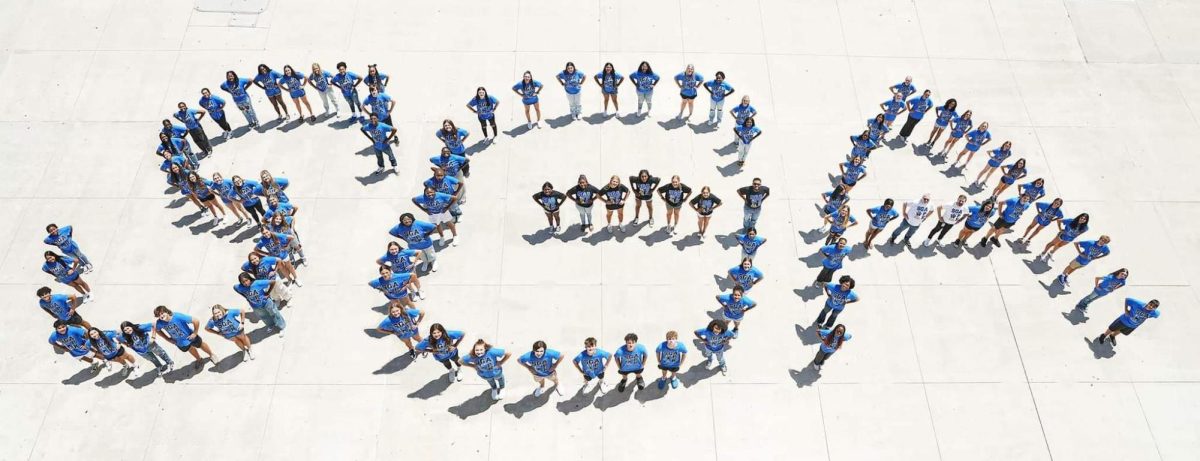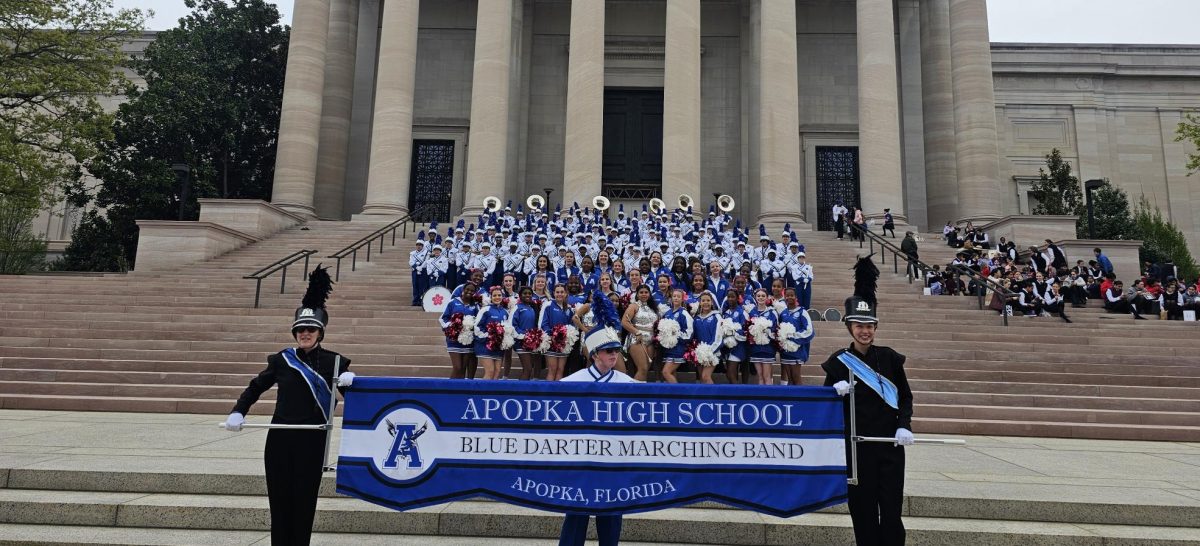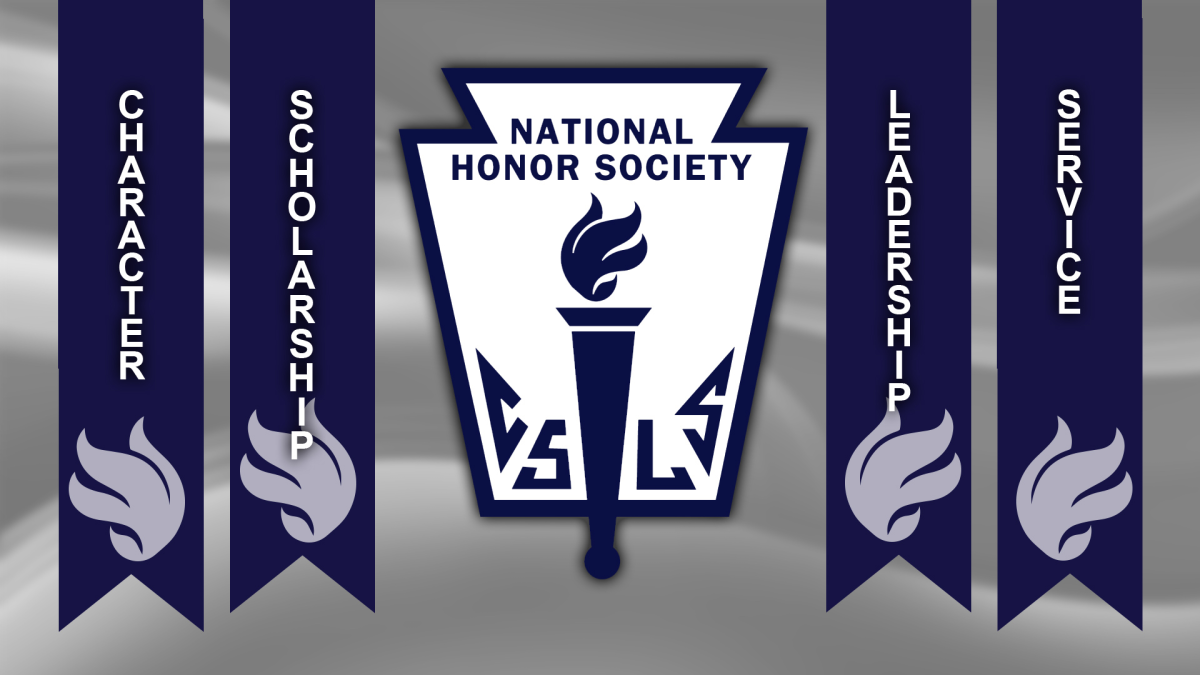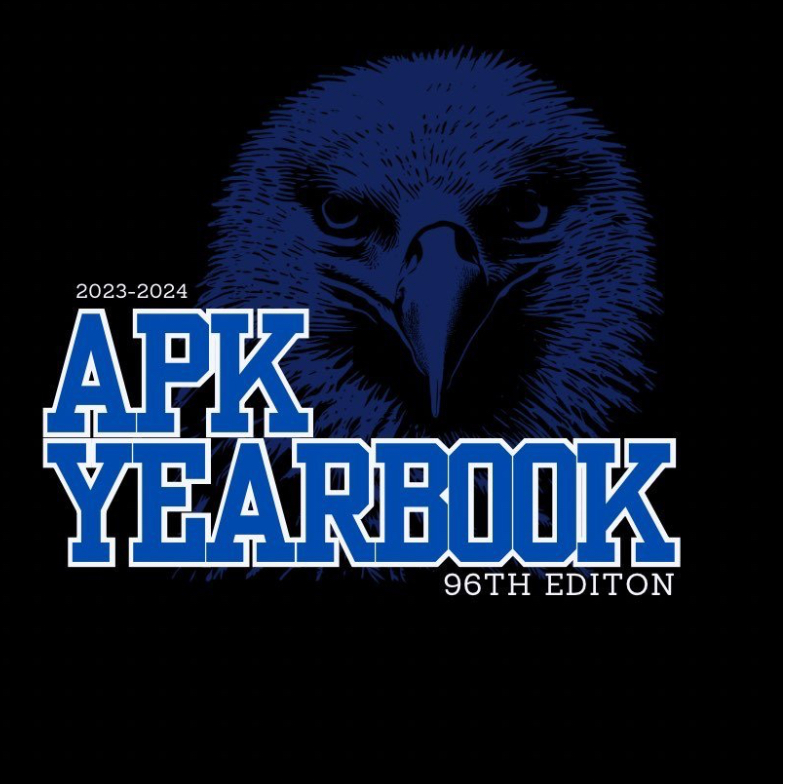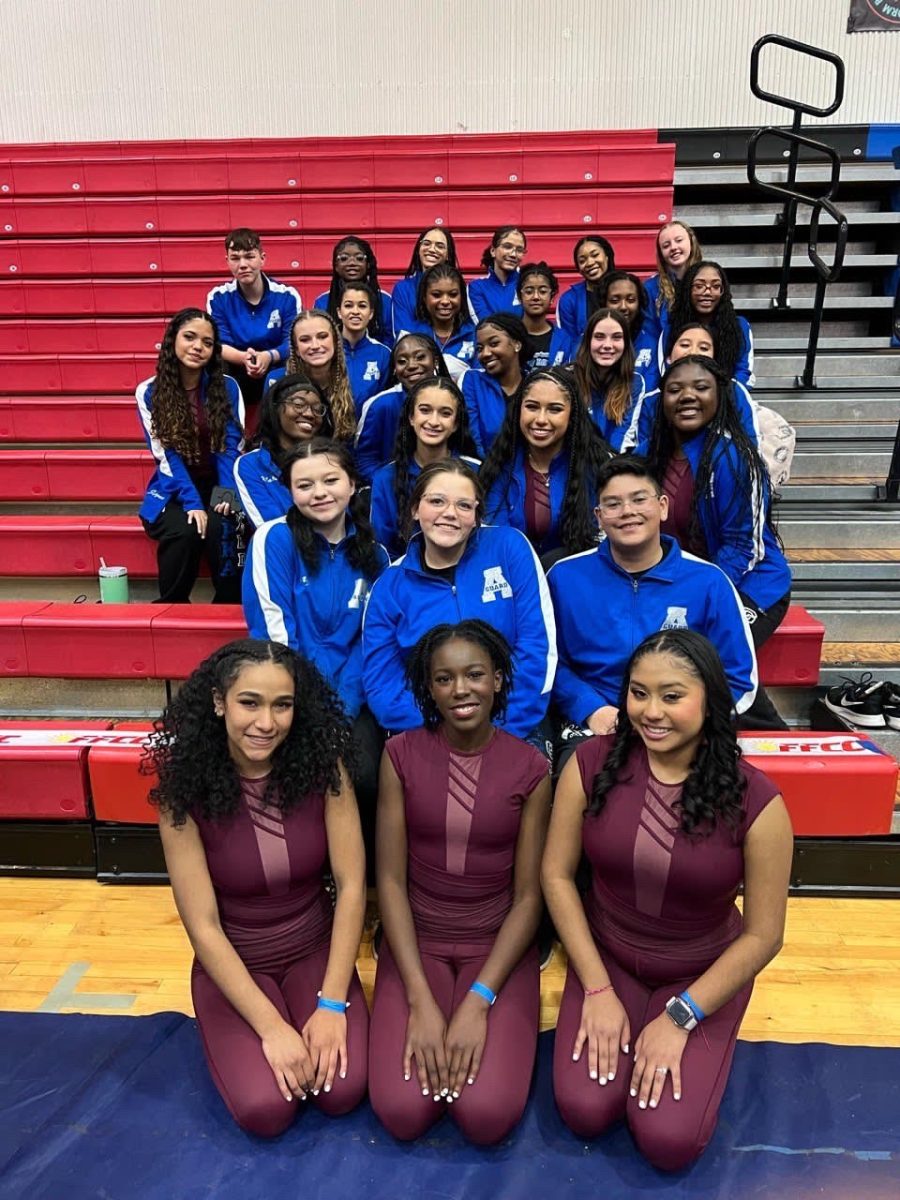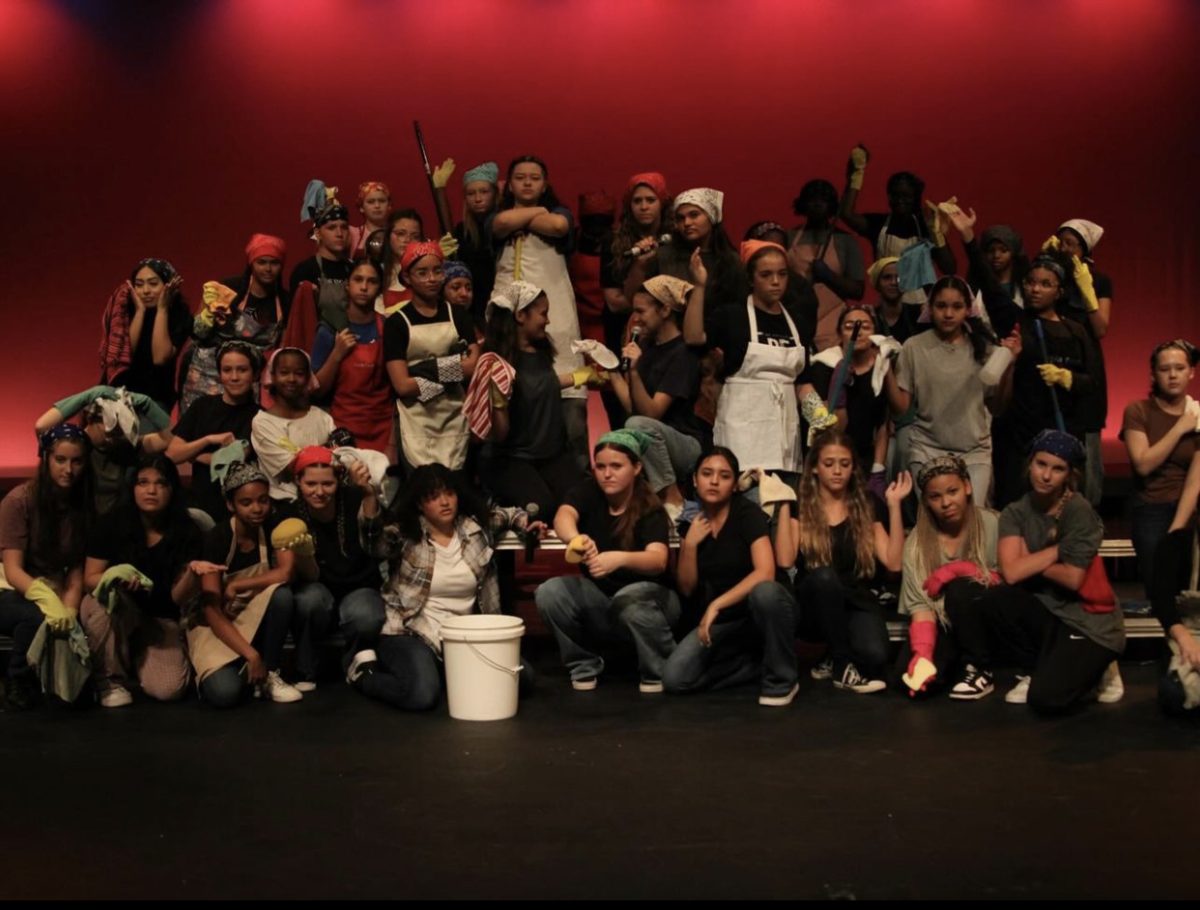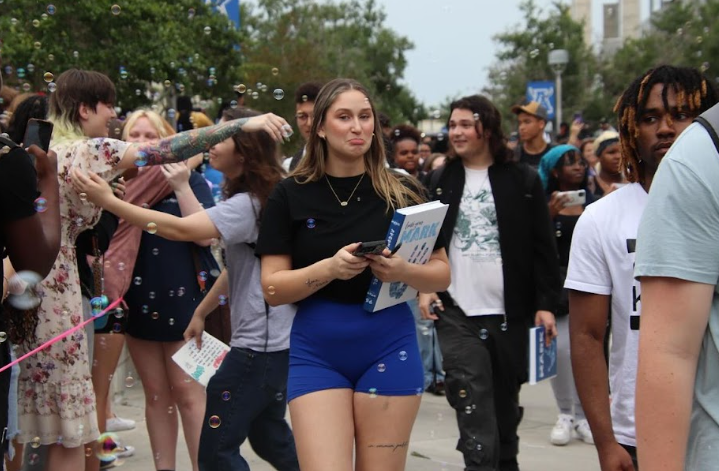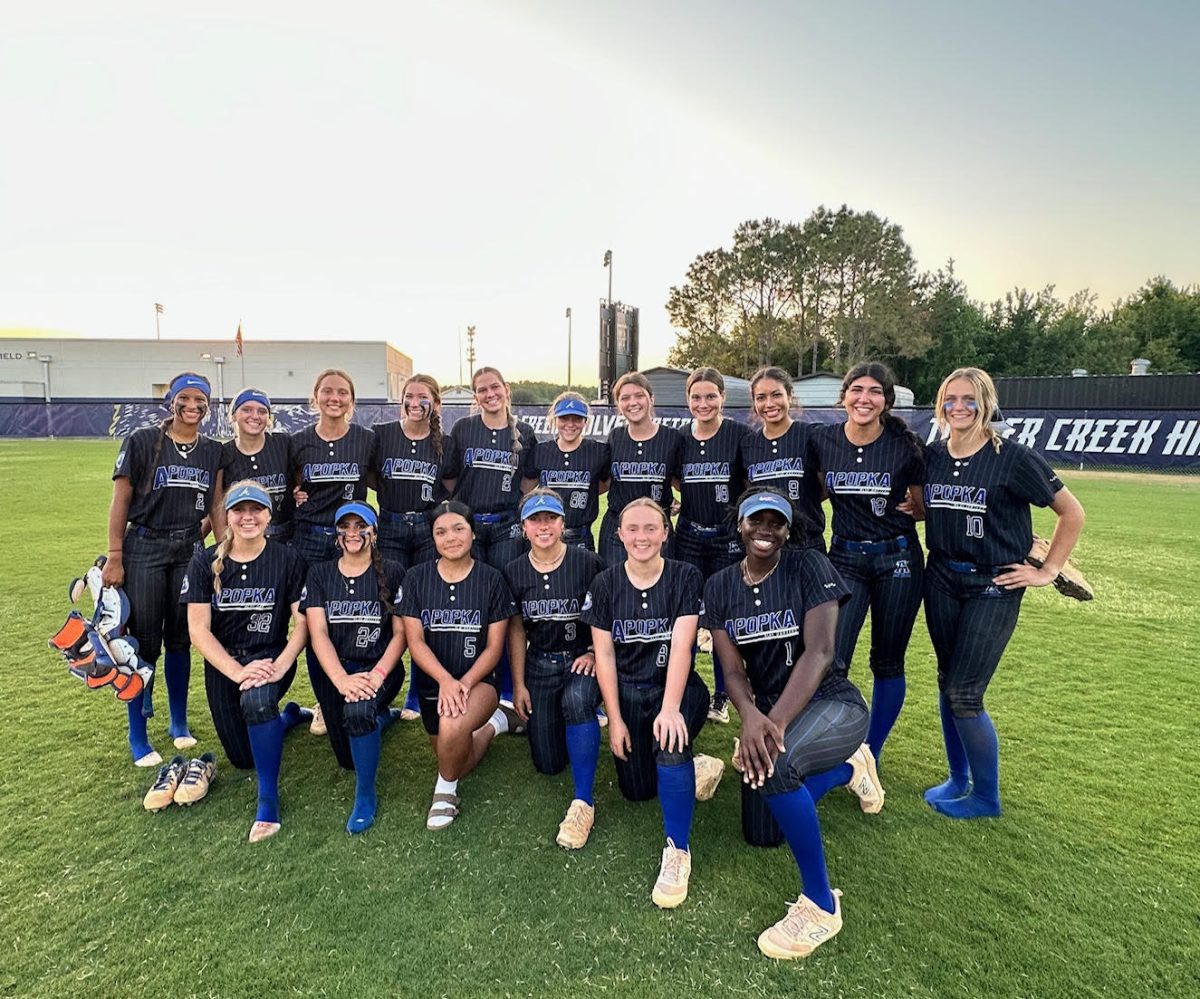Black History Month is an annual celebration of achievements made by African Americans and the role they have played in U.S. history. It is acknowledged each year from February 1 through March 1. Black History Month has been celebrated for 48 years, as the previous week-long event officially became Black History Month in 1976, when U.S. President Gerald Ford extended the recognition of African Americans all over the nation. Apopka High School’s club, Minority Leadership Scholars, has brought the celebration to our campus.
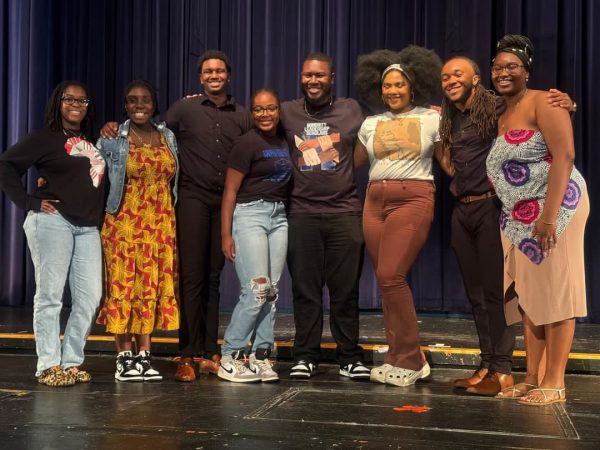
Minority Leadership Scholars is a club established to promote four key pillars – academics, integrity, leadership, and service. This club is specifically for Black, Hispanic, and Latin students. The members of MLS are dedicated to serving both their school and their community by bringing awareness about the diverse cultures of minorities and showcasing their excellence. The ultimate goal of the club is to provide a safe space for its members to grow and develop as a minority living in America. Through this club, members can gain valuable experiences that help them become well-rounded in culture and community. Morgen Peters, a
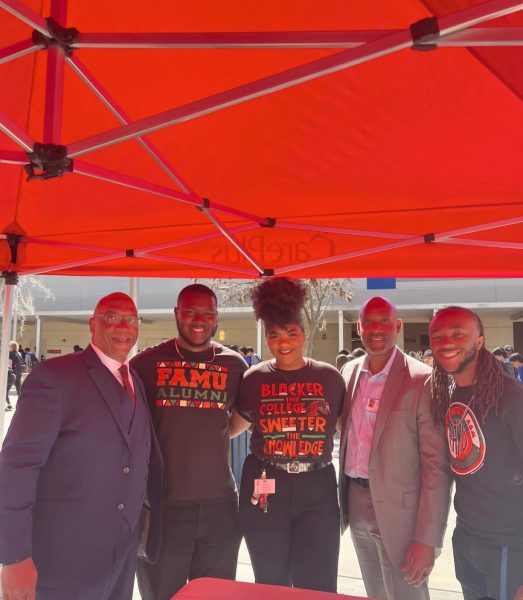
Vice President and junior, states that the club is committed to providing its members with an environment that fosters personal growth and the opportunity to give back to their community.
Minority Leadership Scholars were able to bring the celebration of Black History Month to Apopka through their annual Spirit Week. MLS’s Black History Month Spirit Week was established during the 2022-2023 school year. This year’s spirit week took place from Friday, February 16, to Friday, February 23, and had some unique themes representing elements of black culture.
The first day of the spirit week was Afrocentric Day. Seniors wore red, juniors wore black, and the underclassmen wore green to represent the tri-colored Pan-African flag. Spirit Week Day Two was Historically Black Colleges and Universities Day, better known as HBCU Day. HBCUs date back to the 19th century.
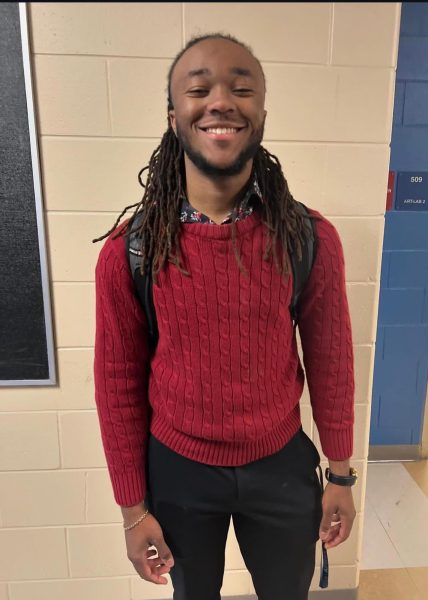
They offered Black students the opportunity for a higher education where other colleges, at the time, often did not. They gave them a chance. For this day, students had to wear a shirt representing an HBCU of their choice. On the third day of BHM Spirit Week, the theme was Sunday best, and students were allowed to wear their best Sunday outfits or church clothes. Black churches have played an immense role in African American communities, as they often advocated for racial equality, according to 77% of Black Americans, so it was only right to have it as one of the themes for Spirit Week. Spirit Week continued, with the next theme being Remember The Times. For the theme, students had to dress up in their favorite fashion from the ’80s, ’90s, and 2000s. This was due to the monumental influence that many Black Americans had on the fashion industry in these decades. The last and final day of MLS’s Black History Month Spirit Week was Darter Unity Day. Students were to wear the school colors of blue and white, representing unity and togetherness. This day was a celebration of the diverse student body and the pride they have in their school.
The Minority Leadership Scholars organized several other events to celebrate Black History Month in February.
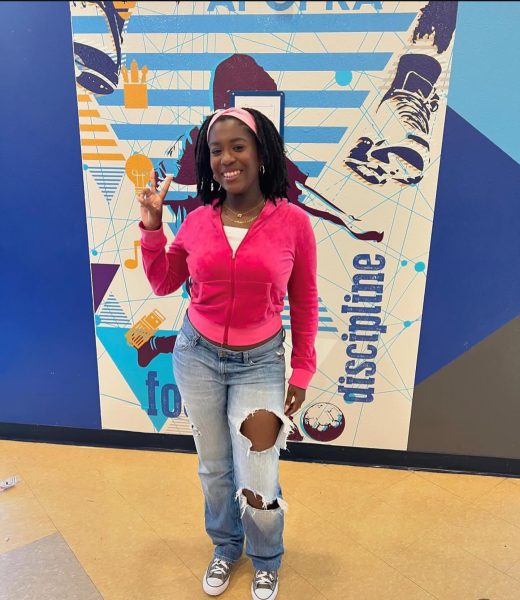
On the first day of Spirit Week, Friday, February 16, they hosted a Movie Night featuring the 2002 film Drumline, starring Nick Cannon. The movie portrays the story of a talented street drummer attending a fictional HBCU who aims to guide the school’s marching band’s drumline to greatness. On the last day of Spirit Week, February 23, MLS organized its annual Black Excellence Showcase, which included performances by local artists and acts from all over to celebrate Black art and talent. Additionally, they organized a Poetry Slam event on Tuesday, February 27, just a few days after Spirit Week ended, to conclude February’s Black History Month festivities on a high note.
The Blue and White had the honor of conducting an interview with MLS officers regarding the impact of Spirit Week on the school community. Vice President and Sophomore Ashley Mays shared that Spirit Week was “a celebration of various elements of black culture.” From African roots to HBCUs and fashion, Mays emphasized that these elements of their culture are an “indispensable” part of their identity and that it was “essential” to represent this in the Black History Month Spirit Week. Morgen Peters spoke about the positive impact of Spirit Week on students, stating that it “gave them hope” and “encouraged them to have fun” while also celebrating their history as individuals and young adults.
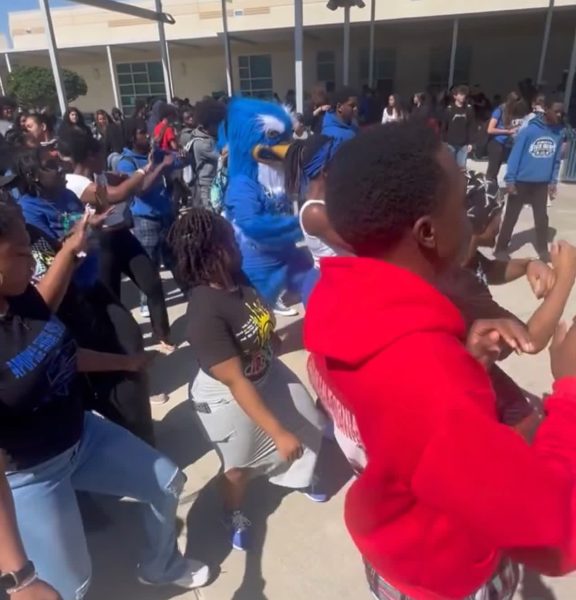
The Blue and White also talked with MLS President and Senior Joshua Washington. He passionately shared how the celebration of Black history has impacted him personally and shaped his identity. As a proud member of the club for all four years of high school, he highlighted that February is “the pinnacle of the year,” as it offers a unique opportunity for the Black community to be seen and heard as a group. Washington emphasized that the celebration of Black History Month is not only a time to reflect on the past, but also a time to uplift and promote the excellence and beauty of those who look like him. He recalled how one-time events became beloved traditions over the years and how it was “cool” to have witnessed that transformation. As a leader in the club, he has had the privilege of
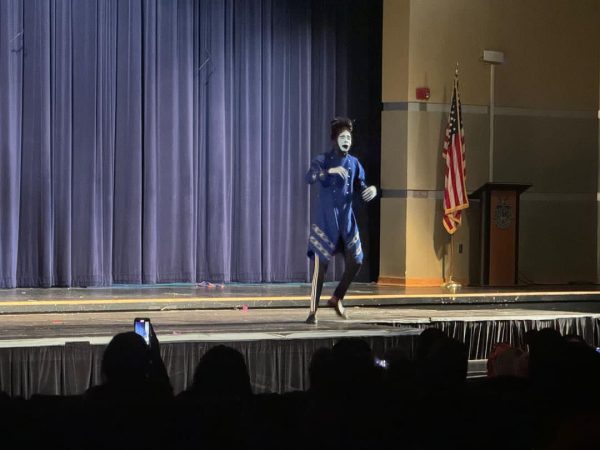
witnessing the program grow and evolve, which has given him a deeper appreciation for how far they have come. Joshua’s perspective reminds us of the power of celebrating diversity and the importance of recognizing and honoring the achievements of underrepresented communities.
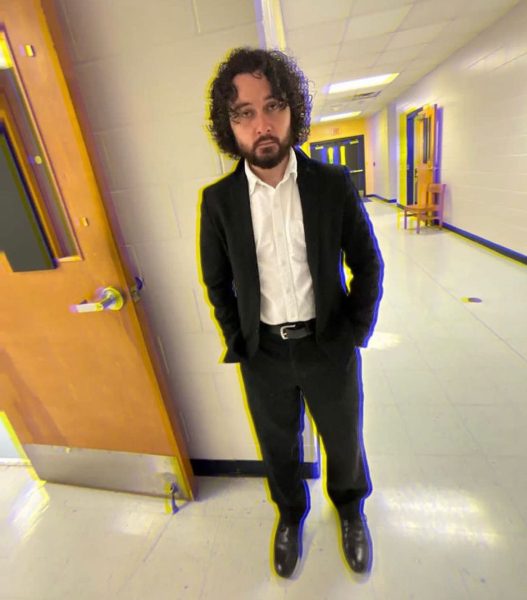
The Minority Leadership Scholars’ Black History Month Spirit Week was a successful event that saw widespread participation from individuals across APK. In addition to Spirit Week, MLS organized many other events during the period, making it a comprehensive celebration of Black history and culture. The week-long event offered a platform for showcasing the significance of Black culture and its contribution to American society. The activities and events organized during the week highlighted the importance of recognizing and celebrating diversity.
Overall, the event was a true testament to the strength and resilience of the Black community and its rich cultural heritage.

